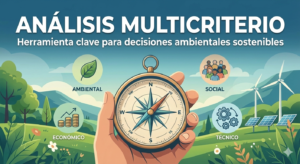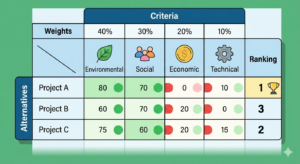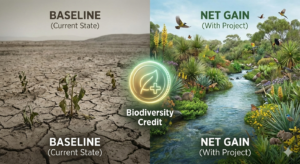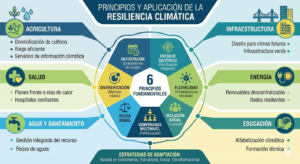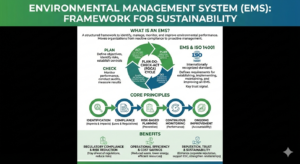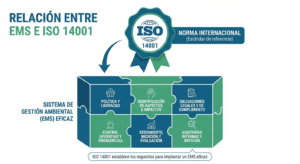What Is Sustainability and Why Does It Matter?
Sustainability is more than a buzzword it’s a strategic approach to ensure that human development meets current needs without compromising the ability of future generations to meet their own. It encompasses a balance between environmental preservation, social equity, and economic viability.
In today’s global context, marked by climate change, resource scarcity, and widening inequality, sustainability serves as a blueprint for building long-term resilience and shared prosperity. It underpins how we consume, produce, govern, and innovate for the future.
The Three Pillars of Sustainability: Environmental, Social, and Economic
Sustainability rests on three core pillars:
- Environmental Sustainability: Responsible management of natural resources, reduction of waste and emissions, and protection of ecosystems.
- Social Sustainability: Promoting social cohesion, inclusion, human rights, and equitable access to resources and opportunities.
- Economic Sustainability: Creating long-term economic strategies that avoid depletion and support innovation, stability, and shared wealth.
These dimensions are deeply interconnected. Any attempt to advance one without the others risks creating fragile systems vulnerable to collapse.
Sustainability vs. Sustentability: A Subtle but Key Difference
In some contexts particularly in Spanish the terms “sustainability” and “sustentability” are used interchangeably. However, there’s a nuanced difference:
- Sustentability focuses on resource renewability ensuring nature can regenerate itself.
- Sustainability embraces a broader view, integrating environmental, economic, and social systems holistically.
For instance, a farmer who ensures the land remains fertile over time follows a sustainable model. A company that reduces carbon emissions while also supporting worker wellbeing and community development exemplifies true sustainability.
The Role of Businesses in Driving Sustainability
Corporations today are under increasing scrutiny to align with sustainable practices. Sustainability in business is not just ethical it’s strategic. It enhances brand loyalty, reduces operational costs, mitigates risk, and attracts conscious investors and consumers.
Examples of sustainable business practices include:
- Using recycled or biodegradable materials.
- Adopting renewable energy sources in operations.
- Implementing ethical labor policies.
- Transitioning to circular business models that emphasize reuse and longevity.
Sustainability is no longer optional — it’s essential to future-proofing any enterprise.
Circular Economy: Minimizing Waste, Maximizing Value
The circular economy is a radical alternative to the linear “take-make-dispose” model. It promotes:
- Reduce: Minimize material and energy consumption.
- Reuse: Extend the life of products and components.
- Recycle: Recover materials at the end of their lifecycle.
Real-world applications include:
- Fashion brands creating apparel from recycled plastic bottles.
- Electronics companies offering device repair and refurbishment services.
- Car-sharing and product-rental platforms.
This model not only protects the environment but also drives innovation and unlocks new economic opportunities.
Energy and Sustainability: The Shift to Renewable Sources
Energy systems are central to sustainability. The transition from fossil fuels to renewables like solar, wind, and hydropower is essential to mitigate climate change.
Leading renewable energy technologies:
- Solar Power: Photovoltaic panels converting sunlight into electricity.
- Wind Energy: Wind turbines generating clean power.
- Hydroelectric Energy: Harnessing water flow for electricity.
Countries such as Denmark and Norway now produce over 50% of their energy from renewables, proving that large-scale transition is feasible and impactful.
ISO, CDP, AENOR, EFRAG: Certifying Sustainable Commitment
To legitimize and scale sustainability efforts, several global certifications and frameworks have emerged:
- ISO 14001 / ISO 50001: Environmental and energy management standards for businesses.
- CDP (Carbon Disclosure Project): A global disclosure system measuring environmental impact, carbon footprint, and water use. Over 13,000 companies participate annually.
- AENOR: Spain’s certification body evaluating corporate compliance with sustainability norms.
- EFRAG: European Financial Reporting Advisory Group — guiding the integration of ESG (Environmental, Social, Governance) standards into financial reporting.
These frameworks hold companies accountable and provide transparency to stakeholders, regulators, and investors.
Sustainability in Finance: ESG and Corporate Accountability
Sustainable finance integrates environmental, social, and governance (ESG) factors into investment decisions. The trend has gone mainstream, as more funds and stakeholders demand proof of ethical, future-facing practices.
Key impacts of ESG-focused finance:
- Companies with strong ESG ratings tend to outperform over the long term.
- Investors are avoiding firms with weak sustainability practices due to increased reputational and regulatory risks.
- Sustainability is now seen as a value driver, not a cost center.
Entities like EFRAG are making ESG reporting mandatory for over 50,000 companies across Europe — ensuring sustainability is not a nice-to-have, but a non-negotiable.
Global Actors Advancing Sustainability
Many organizations are shaping global sustainability:
- United Nations Global Compact: Encourages corporations to align with Sustainable Development Goals (SDGs).
- World Wildlife Fund (WWF): Champions environmental conservation and biodiversity.
- Greenpeace: Advocates for climate action, forest protection, and plastic pollution reduction.
- World Economic Forum (WEF): Promotes sustainable innovation and corporate responsibility through global summits.
- IPCC (Intergovernmental Panel on Climate Change): Provides scientific assessments on climate change and policy recommendations.
These institutions collectively form the backbone of the sustainability movement.
Fostering a Sustainable Culture: Local Actions, Global Impact
Ultimately, sustainability is not just a corporate or governmental responsibility. It’s cultural. It’s about how individuals shop, travel, consume, vote, and educate.
Everyday sustainable practices:
- Reducing single-use plastics and food waste.
- Supporting local, ethical businesses.
- Transitioning to public transport or low-emission vehicles.
- Advocating for green policies and inclusive economies.
Building a culture of sustainability means embedding it in values, systems, education, and innovation — ensuring it becomes second nature rather than an afterthought.
Building a Resilient, Regenerative Tomorrow
Sustainability is the defining challenge and opportunity of our time. It is a multidimensional commitment that spans how we live, govern, build, and regenerate.
With rising environmental threats, economic uncertainty, and social disparities, adopting a sustainability-first mindset is no longer a vision it’s an imperative. Through collaboration across sectors, clear accountability, and widespread cultural adoption, we can construct a future that is not just survivable, but thrivable.

